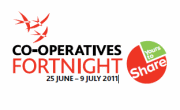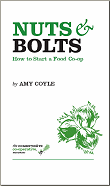Turn the BBC into a Co-operative
Sara Scarlett of Competitive Enterprise Initiative explains her petition for a British Broadcasting Co-operative.
The television license is a tax in everything but name. Advert-free, non-profit television should always be an option for consumers. Turning the BBC from a government-owned corporation into a consumer-owned co-operative would change nothing about its current high quality content - just the unfair aspect of how it is funded. It would give it an even bigger advantage on it’s rivals with 12m co-operative members in the UK and 1billion worldwide.
As it is currently structured, the funding of the BBC creates a lot of losers. I love BBC programming but I rarely watch any BBC channels beyond BBC One and Two. I hardly ever watch sport and do not have access to BBC Three and Four. If you only use your TV to play video games and watch X-Factor on ITV, the license fee means you lose out entirely.
Many regard spending £145.50 year on television as frivolous cost they would not normally have unless forced to, especially in the present economic climate where many are watching every penny. As a consumer I should only have to pay for the services I use. Likewise other people should not have to pay for television I enjoy and value if they don’t enjoy and value it themselves. That is unfair.
In many respects the BBC is broken. It is wasteful and has no incentive to cut back on any unnecessary spending. In recent years I believe that a lot of legitimate criticism of the BBC would have been avoided had they taken more time to appreciate what their audience wanted. This would certainly have prevented instances where the BBC overstaffed events, such as Glastonbury and the Dale Farm Eviction.
Currently 20% of BBC funding comes from sources other than the license fee. Those sources could be expanded and this other revenue be used to keep the niche channels like BBC Parliament and fund other innovation and experimentation.
Were the BBC a co-operative, members would pay a yearly fee for the service in lieu of commercial advertising. Logistically speaking this may mean the small matter of having a BBC box in your living room. But rather than a flat license fee for everyone this would allow for a variety of membership options, ranging from cheap ‘Basic’ and ‘Student’ options to expensive options with more channels or packages specifically geared towards your interests.
Being a co-operative would mean the BBC would be owned by the individuals who choose to be members rather than being the jurisdiction of the Department of Culture, Media and Sport. The members would be democratically enabled, thus the BBC would be more accountable to its audience. I predict that this would result in the content of the BBC becoming a much higher quality and the organisation itself becoming leaner and more efficient.
Turning the Beeb into a co-operative is a win-win situation. If you were given the opportunity to preserve something that you enjoy and value, whilst at the same time making it fair, more efficient and democratically accountable – it would be silly not to do so.
Sign the e-petition here: http://epetitions.direct.gov.uk/petitions/28826
Sara read Politics and International Relations at Royal Holloway, University of London and is currently a Media Associate at the Competitive Enterprise Institute in Washington, DC. Sara has been a member of the Liberal Democrat party since 2008 and is a strong supporter of mutualism and cooperative solutions to the problems facing our society.



